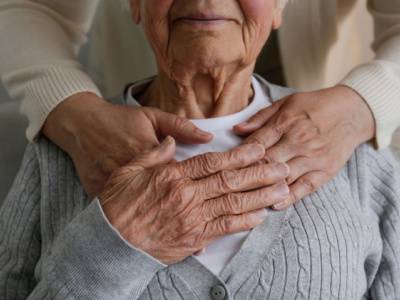Choosing Between Guardianship and Medical Power of Attorney
 As our loved ones age, it is important to plan for their healthcare needs. Establishing guardianship and creating a medical power of attorney are two options that families may consider. Both choices have advantages and disadvantages, and the best option will depend on an elder’s specific needs and the role that family members will take when providing care and assistance. An attorney who works in the field of elder law can provide guidance on the available options while helping family members make sure they will be prepared to address the challenges that may arise as they provide care for an elderly loved one.
As our loved ones age, it is important to plan for their healthcare needs. Establishing guardianship and creating a medical power of attorney are two options that families may consider. Both choices have advantages and disadvantages, and the best option will depend on an elder’s specific needs and the role that family members will take when providing care and assistance. An attorney who works in the field of elder law can provide guidance on the available options while helping family members make sure they will be prepared to address the challenges that may arise as they provide care for an elderly loved one.
What Is Guardianship?
When guardianship is established, a court will appoint a person to make decisions on behalf of someone who is unable to fully care for themselves. Guardianship of the person will give a guardian the right and responsibility to make decisions about where an elderly person will live and what forms of medical treatment they will receive. To establish guardianship, evidence will usually need to be provided showing that an elder does not have the mental capacity to make informed decisions about their own healthcare. However, an elder may also agree to name a guardian who will provide them with assistance. If necessary, a guardian’s authority may be limited to certain areas, ensuring that the elder will have as much control over their own life as possible.
Advantages of Guardianship:
-
Broad decision-making authority: A guardian of the person will be able to make decisions about an elder’s health and their overall welfare. This can ensure that issues related to living arrangements, medical treatment, and other personal concerns will be addressed correctly.
-
Court oversight: With guardianship, a court will have supervision over the guardian, ensuring that they will act in an elder’s best interests when making decisions about medical care.This can provide an added layer of protection against any potential abuse or misuse of authority.
Disadvantages of Guardianship:
-
Limited autonomy: Guardianship will often involve restrictions to an elder's rights and their ability to make decisions for themselves. This loss of control may affect their emotional health and their overall well-being.
-
Ongoing court involvement: A guardian is required to submit regular reports to the court, which can be time-consuming and can potentially lead to legal disputes or other issues.
-
Costs: Guardianship proceedings can become expensive due to court costs and other fees that must be paid as the court supervises the guardian's decisions and makes sure an elder’s best interests are protected.
What Is Medical Power of Attorney?
With a medical power of attorney, an elder will appoint a family member or someone else they trust to make healthcare decisions on their behalf if they become unable to do so themselves. This decision-making authority will only affect certain medical issues, and it does not extend into other aspects of an elder’s life. An elder may specify when a medical power of attorney will take effect, such as if they become ill or incapacitated to the point where they cannot communicate their wishes. They may also limit the types of decisions that may be made and provide instructions about their wishes regarding medical treatment.
Advantages of Medical Power of Attorney:
-
Individual autonomy: Medical power of attorney can provide a person with greater control over their healthcare choices. By detailing their wishes, a person can make sure their personal preferences regarding treatment options, end-of-life care, and more will be respected.
-
Faster decision-making process: A medical power attorney reduces delays in receiving necessary medical care since there will be no need for court intervention.
-
Cost: The expenses involved in creating a medical power of attorney are generally lower than the costs of guardianship proceedings.
Disadvantages of Medical Power of Attorney:
-
Limited decision-making authority: A medical power of attorney will only allow a person to address matters related to healthcare in certain specific situations. Additional planning may be necessary if other types of decisions will need to be made for an elder.
-
Potential for conflict: In some cases, family members may disagree about the best course of action for an elder’s medical treatment. Without specific instructions, it can be difficult to determine what an elder would have wanted, and relationships may be strained as these issues are addressed.
Contact a Bexar County Elder Law Attorney
As people age, they and their family members will sometimes struggle to address issues related to medical treatment and personal care. When loved ones are tasked with meeting an elder’s needs, they will want to make sure they will be able to make all necessary decisions on their loved one’s behalf. At The Law Office of Ryan C. Moe, PLLC, our San Antonio estate planning lawyers can provide guidance on whether guardianship, medical powers of attorney, or other methods can be used to provide for an elder’s needs. To set up a consultation and learn more about how we can assist with these concerns, contact us at 210-861-6000.







